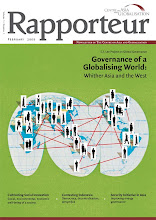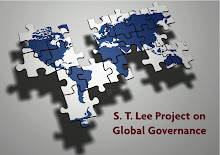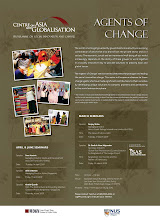 Donald Rumsfeld once said, “there are things we know we know. We also know there are known unknowns. But there are also unknown unknowns -- the ones we don't know we don't know."
Donald Rumsfeld once said, “there are things we know we know. We also know there are known unknowns. But there are also unknown unknowns -- the ones we don't know we don't know."Rumsfeld certainly wasn’t referring to Sovereign Wealth Funds (SWFs; see SWFs ranking) but these have certainly become one of the unknowns to many. The world saw a number of countries setting up their own SWFs to manage their accumulated wealth. The IMF estimated last year that SWFs now control nearly USD 3 trillion and that by 2012, the figure could reach USD 12 trillion. USD 3 trillion is significant when you consider that the total current value of traded securities in Africa, the Middle East and Eastern Europe combined is about USD 4 trillion.
Some argue that SWFs are useful tools to diversify and strengthen their economies while others have pointed out the lack of transparency (very few disclose information about their assets, liabilities, investment strategies, etc) and potential abuse of power.
SWFs certainly challenge the traditional notions of governance within existing international financial institutions and this will be one of key issues that CAG’s Global Finance Governance study group will examine when it convenes in Singapore in December.
Edwin Truman, Senior Fellow at the Peterson Institute for International Economics explodes myths surrounding SWFs in his latest article titled “Sovereign Wealth Funds: Debunking Four Popular Myths” in which he outlines four popular myths: (1) about "them" not "us" (2) all the same in their opacity (3) a net benefit to the international financial system, and (4) not like hedge funds. Read Truman's article. [Sung]










No comments:
Post a Comment